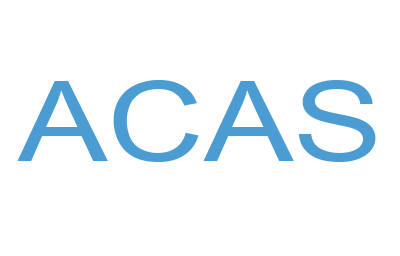Logo

Clinical Centers
37
Participants
1500
Beginning
1987
Ending
1998
Study Design
Randomized, unmasked trial
Acronym
ACAS
Description
The Asymptomatic Carotid Atherosclerosis Study (ACAS) established that the long-term risk of ipsilateral stroke in neurologically asymptomatic patients with a $60% carotid stenosis was reduced by carotid endarterectomy. The 5-year estimated risk for ipsilateral stroke was 11.0% and 5.1% for the medical and surgical groups, respectively, ie, a
53% relative risk reduction in favor of surgery.1 Cervical atherosclerosis produces stroke by 1 of 2 methods. Arterial thrombosis or particulate atherosclerotic matter may
embolize from the neck lesion to an artery in the brain, producing an ischemic stroke. Second, the atherosclerosis/ thrombosis may progress beyond a critical point, which leads to hypoperfusion of distal vessels, resulting in ischemic stroke. Under these circumstances, survival of the ipsilateral cerebral hemisphere would depend on adequate collateral circulation.
We hypothesized that patients with a contralateral carotid occlusion would be at an increased risk for stroke. Theoretically, these patients would have decreased collateral flow and pressure, and thus embolic and thrombotic events would be more apt to lead to cerebral infarction. In an effort to test this hypothesis, we compared the outcomes of ACAS patients who did and did not have a contralateral internal carotid artery occlusion at baseline.
53% relative risk reduction in favor of surgery.1 Cervical atherosclerosis produces stroke by 1 of 2 methods. Arterial thrombosis or particulate atherosclerotic matter may
embolize from the neck lesion to an artery in the brain, producing an ischemic stroke. Second, the atherosclerosis/ thrombosis may progress beyond a critical point, which leads to hypoperfusion of distal vessels, resulting in ischemic stroke. Under these circumstances, survival of the ipsilateral cerebral hemisphere would depend on adequate collateral circulation.
We hypothesized that patients with a contralateral carotid occlusion would be at an increased risk for stroke. Theoretically, these patients would have decreased collateral flow and pressure, and thus embolic and thrombotic events would be more apt to lead to cerebral infarction. In an effort to test this hypothesis, we compared the outcomes of ACAS patients who did and did not have a contralateral internal carotid artery occlusion at baseline.
Legacy
Legacy
No